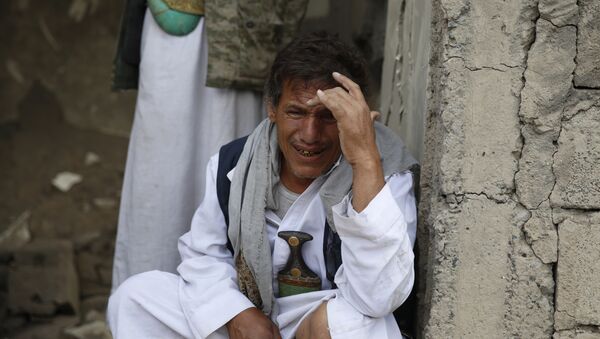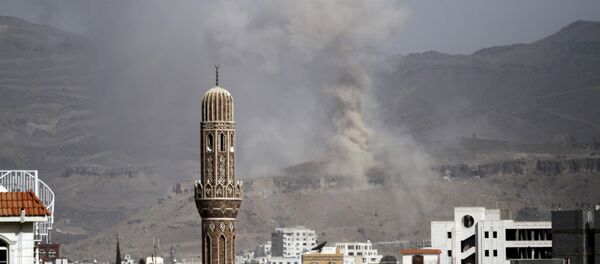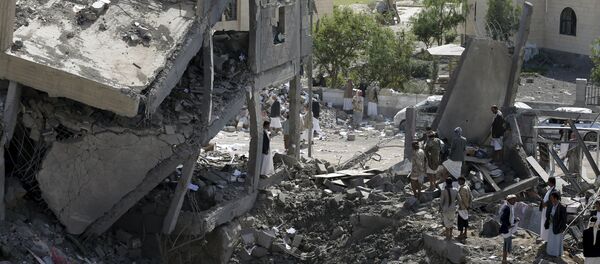Jaber, 57, who has grounds to believe his brother-in-law and nephew fell innocent victim to the August 2012 drone strikes in Yemen, has been seeking an apology — or even acknowledgement — for the deaths of his loved ones.
His 2013 meeting at the White House also failed to offer any answers for the deaths of his relatives, the Guardian reported, and so Jaber felt he had no choice but to file a federal lawsuit in June.
On Monday, Jaber's lawyers at the human-rights group Reprieve wrote to the Obama administration with an alternative offer, to drop the lawsuit in exchange for "an apology and an explanation as to why a strike that killed two innocent civilians was authorized."
As the Justice Department explained, the "alleged" strike in question was a result of "complicated policy decisions" made after complex diplomatic considerations, and it was beyond the competence of the judge to scrutinize the case.
Jaber had reason to be hopeful, according to the Guardian. Obama personally apologized for a 2012 drone strike that killed westerners Warren Weinstein and Giovanni Lo Porto, who were held hostage by al-Qaida extremists on the Afghanistan-Pakistan border.
"On behalf of the United States government" Obama said on April 23, "I offer our deepest apologies to their families." Many believed that the president was marking a new chapter of transparency and accountability for US counter-terrorism with that move. So what went wrong for Jaber?
"There is no good reason that the president stood up in front of the world with the Lo Porto and Weinstein families to say sorry for the US's tragic mistake, but can't do so for a Yemeni man," said Jaber's attorney Cori Crider.
Justice Department officials refused to comment on why the offer was denied.
"The US government takes seriously all credible reports of non-combatant deaths and injuries — irrespective of nationality — and recognizes that every loss of innocent life is tragic," White House National Security Council chief spokesman Ned Price told the Guardian.
"In those rare instances in which it appears non-combatants may have been killed or injured, we have, when appropriate, provided acknowledgement and compensation."
Little comfort, of course, for Jaber.




